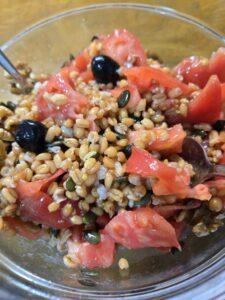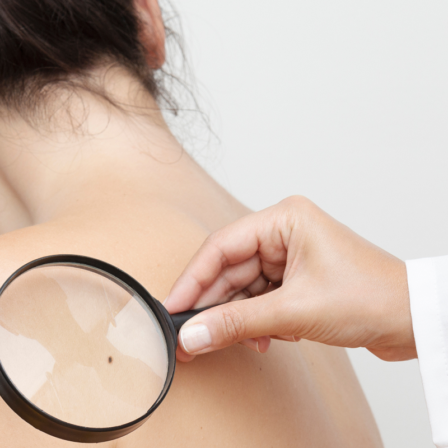PREVENTIVE AND FAMILY MEDICINE

Through Preventive Medicine we focus on maintaining and promoting well-being, preventing diseases, disability, and premature death. Aside from treating illnesses, the promotion of Health Education, and implementation of Preventive Medicine are the two main objectives of the center. From a functional medicine perspective we try to find the cause of the problem and not just treat the symptom.
''Preventive healthcare consists of measures taken for disease prevention. Disease and disability are affected by environmental factors, genetic predisposition, disease causing agents, and lifestyle choices. These are dynamic processes which usually begin before patients realize they are affected. Disease prevention relies on anticipatory actions, education of patients and the constant education of the professionals involved in the activity."
We also practice family medicine, taking care of all ages: children, adults, and seniors.
As is well known, the two leading causes of death in the world are heart attacks and strokes. In our practice we dedicate a lot of time and effort to trying to reduce the risk factors that lead to the development of these kinds of complaints.We have introduced a new service in the practice which will help us to evaluate the condition of the arterial system of our patients so as to be able to act early, and to prevent the progression of ASCVD (Atherosclerotic Cardiovascular Disease), which leads on to theses sort of illnesses.
For checkups to be more useful and preventative, it's a good idea to have them done regularly. The younger we start, the better the long-term results will be.
"Knowledge is not just power, it is also health."

 Notes on prevention of illness and promotion of quality longevity.
Notes on prevention of illness and promotion of quality longevity.
One of our objectives is to educate our patients so that they take an active part in maintaining and promoting their health. Probably the most important system we can use to achieve this in the majority of cases, is Lifestyle adjustments.
When we want to make changes in our life it is usually best to do them step by step so that the changes being implemented are not overwhelming and therefore discouraging.
BOWEL CANCER or COLORECTAL CANCER.
Colorectal cancer, also known as bowel cancer and colon cancer, is the development of cancer in the colon or rectum.
It is very treatable and 90% can be cured if caught in time.
It is the most common cancer between men and women.
The financial cost of colorectal cancer in Spain is estimated to be 1200 million euros a year. If everybody in the country were screened for it the cost would be of approximately 70 million euros a year.
90% of the new cases are diagnosed in people over the age of 50 but slowly it is starting to appear in younger people.
Early diagnosis and prevention are clearly cost effective.
Risk factors:
The risk factors can be divided in two groups: Variables and invariables.
Invariables:
- Being over 50 years old. Remember slowly it is creeping in to younger age groups.
- Having a personal history of polyps in the colon or rectum.
- Having a family history of colorectal cancer or certain kinds of polyps.
- Some hereditary illnesses such as Familial adenomatous polyposis (FAP), Lynch Syndrome.
- Having an intestinal inflammatory illness, also known as Inflammatory bowel disease (IBD), such as Ulcerative Colitis or Crohn's.
Variables:
- A diet rich in red meats and processed meats.
- A fat rich, low fiber diet.
- Smoking and drinking too much alcohol.
- Being overweight.
- Physical inactivity.
- Having type 2 (usually non-insulin dependent) diabetes.
- A diet low in fruit and vegetables.
- There are studies that suggest that deficiency of vitamin D increases the incidence of colon cancer and that it might also have a negative impact on the survival of colon cancer patients.
DR. STOMA MEDICAL CENTER
A Holistic medical center focusing on prevention and the promotion of health
SKIN CANCER
BASIC CONCEPTS
- The most frequent cancer.
- Amongst the easiest to diagnose.
- Amongst the most curable of cancers.
- With excellent prognosis if caught early.
WHO
- Fair skinned people.
- People who have had and have a lot of sun exposure.
- People with a family history of skin cancer.
- People who had sunburn as a child.
- People with 50 moles or more.
- Excessive exposure to UV rays.


SIGNS TO ACT UPON: “ABCDEFGHI”.
If you have a mole that:
Is Asymmetrical
Has irregular Borders
Has different Colours
Its Diameter is greater than 6mm
It is Evolving
Feels itchy
Grows on a scar
Has recently appeared
Intermittently bleeds
then get it checked. When in doubt always consult.
Do regular Total Body Checks
CANCER
Things we can do to reduce the incidence of cancer.
1) AVOIDING OR LIMITING CERTAIN FOODS:
-
- Processed meats.
- Red meat.
- Fast food.
- Fat rich processed foods of all sorts.
- Sugars. Sugar is put into nearly all factory processed food stuffs.
- Starches.
- Sweet drinks.
- Alcohol consumption.
2) CONTROL WEIGHT.
Being overweight is related to at least, 12 different types of cancer: ovarian cancer, prostate, stomach, throat and mouth cancer, rectum and colon, breast cancer in postmenopausal women, gallbladder, kidney, esophageal cancer, pancreatic, and womb.
3) BE PHYSICALLY ACTIVE.
The importance of regular physical activity can not be overstated.
4) THE RIGHT DIET.
Try to consume a diet that is rich in vegetables, fruit, whole grains and beans. Roughage is important as are fresh foods. Try and get your nutrients of.
5) BREASTFEEDING.
The WHO recommends that infants should be exclusively breastfed for the first 6 months of their lives, and then to continue to the age of two or beyond, alongside appropriate complementary foods.
6) AVOID TOBACCO.
Smoking can cause cancer almost anywhere in your body, including the:
- Blood (acute myeloid leukemia)
- Bladder
- Cervix
- Colon and rectum
- Esophagus
- Kidney and renal pelvis
- Larynx
- Liver
- Lungs
- Mouth and throat
- Pancreas
- Stomach
- Trachea, lung and bronchus
7) AVOID EXCESSIVE SUN EXPOSURE.
CHECK-UPS
A check-up is not only a series of tests and examinations in search of ignored diseases, but it is a good time to review the lifestyle of patients, thus being able to detect errors and bad habits in time. Its main objective is prevention, early diagnosis and maintenance.
We recommend that annual check-ups begin at 13-14 years of age and the reason is that we want early detection of illnesses, bad trends or unhealthy lifestyle habits that can influence the quality and duration of the young patient's life. At the same time, we want to educate young people so that they have a good and open relationship with health professionals. They should develop a responsible attitude towards their health, and then educate their future families in the proper use of the knowledge that there is in reference to health and its maintenance.
Please consult with our staff about organizing your annual Checkup.
BOWEL CANCER SCREENING CAMPAIGN
We are starting a colorectal cancer screening campaign as early diagnosis is the main conditioning factor for outcomes. Approximately 850 cases are diagnosed in Mallorca every year and those diagnosed early will do better.
90% of the new cases are diagnosed in people over the age of 50 but slowly it is starting to appear in younger people.
RISK FACTORS:
Being over 50 years old. Remember it is spreading into younger age groups.
Having a history of polyps in the colon or rectum.
Having a family history of colorectal cancer or certain kinds of polyps.
Some hereditary illnesses such as Familial adenomatous polyposis (FAP), Lynch Syndrome.
Having an intestinal inflammatory illness, also known as Inflammatory bowel disease (IBD), such as Ulcerative Colitis or Crohn's.
Having blood in stools, changes in bowel habits and stools, abdominal discomfort or pain, and/or weight loss.
